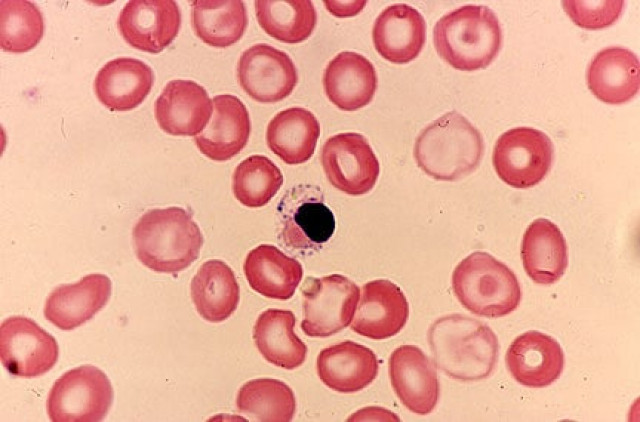Health care: Social stigmas hampering fight against thalassaemia
Experts urge for better awareness about thalassaemia and its prevention.

This was stated by Italian Pediatric Haematologist and Oncologist Dr Lawrence Faulkner, while speaking at a conference on prevention, management and cure of thalassaemia major in Pakistan held at Pakistan Institute of Medical Sciences (Pims) on Sunday.
Dr Faulkner said that with a minimum of 80,000 thalassaemia patients in the country and around 4,000-5,000 children born with this disease every year, “many families are still reluctant to undergo screening and choose not to know whether they are carriers of the disease.” He said that though thalassaemia is treatable in Pakistan, its prevention has been complicated by cultural stigmas as a person diagnosed as thalassaemia carrier is considered “sick”. He said that given such prejudice, it is difficult to push families to have screening for the disease as they do not want to know that they are its carriers.
Dr Faulkner is the founder and advisory board coordinator of Cure2Childern Foundation Italy, a non-profit organisation dedicated to the care of severe diseases in children, like cancer, leukaemia, thalassaemia, sickle cell disease and other curable conditions in developing countries. It is providing financial and professional support to Pakistan for bone marrow transplant in six institutions, including Pakistan Institute of Medical sciences (Pims), where to-date 33 bone marrow transplants have been conducted.
Meanwhile, the Italian Ambassador Vincenzo Prati, said that Pakistan has the expertise in this field and the required resources, all that is lacking is awareness among the general public about thalassaemia and the importance of its prevention. He said that Pakistan is currently passing through a challenging period but the government of Italy is committed to invest here in all sectors and continue its support.
Dr Faulkner said that access to health facilities in Pakistan is not realistic, especially for poor women living in remote areas, as it is seen that 75 per cent of the total number of thalassaemia patients belong to poor families. However, he said there are no accurate statistics on this disease and are all estimates. The actual figures, he said, can be very high as there are many poor families in the country where children with thalassaemia are born and then they die, and the parents remain unaware of the cause of their death.
(Read: Disease awareness - Thalassaemia rate high in Malakand)
He said that in Pakistan there is a trend of cousin marriages, which is why it is even more important for people to be screened to know if they are thalassaemia carriers. For couples that are both thalassaemia carriers, Dr Faulkner stressed that the mother should have a pre-natal diagnosis as soon as she conceives. The test can determine if the baby is a thalassaemia major, and if that is the case, then the child can be aborted in the first 120 days of pregnancy, he added.
He strongly stressed that prevention against thalassaemia can save the lives of millions of children.
Talking about the treatment for thalassaemia, Dr Faulkner explained that blood transfusion is a costly option and is not a long-term solution, adding that children undergoing the treatment are at high risk and majority of them die around 20-25 years of age. Whereas the bone marrow transplant- which he said is the only possible cure for disease - has possible side effects which include infertility.
Published in The Express Tribune, October 3rd, 2011.



















COMMENTS
Comments are moderated and generally will be posted if they are on-topic and not abusive.
For more information, please see our Comments FAQ